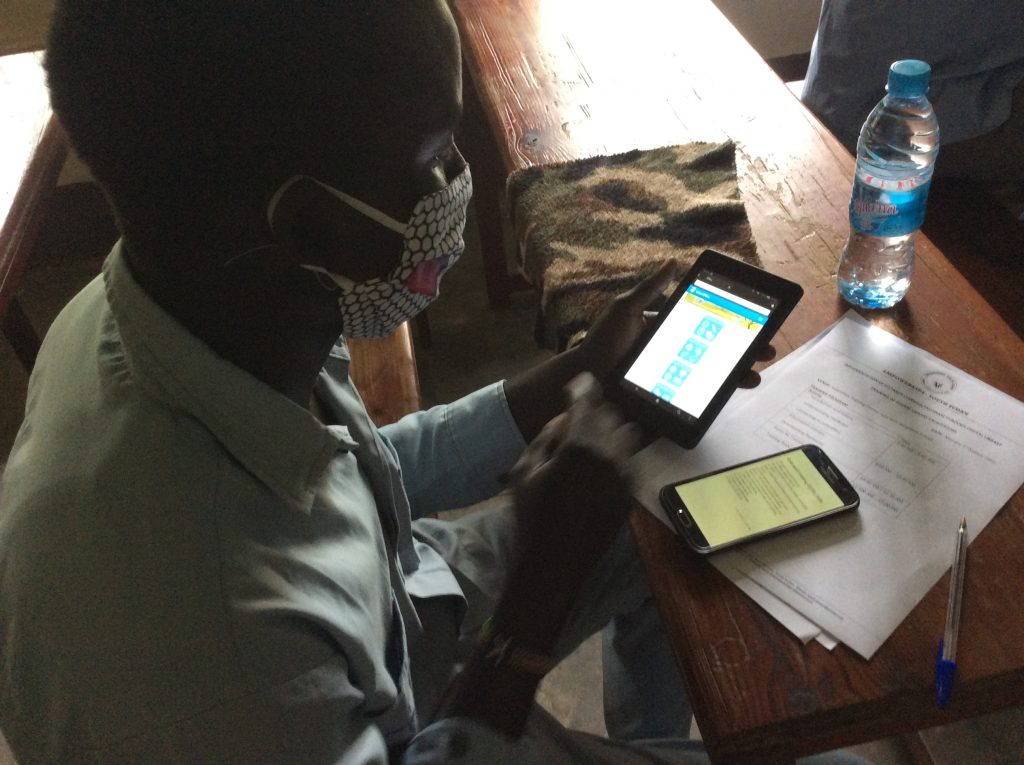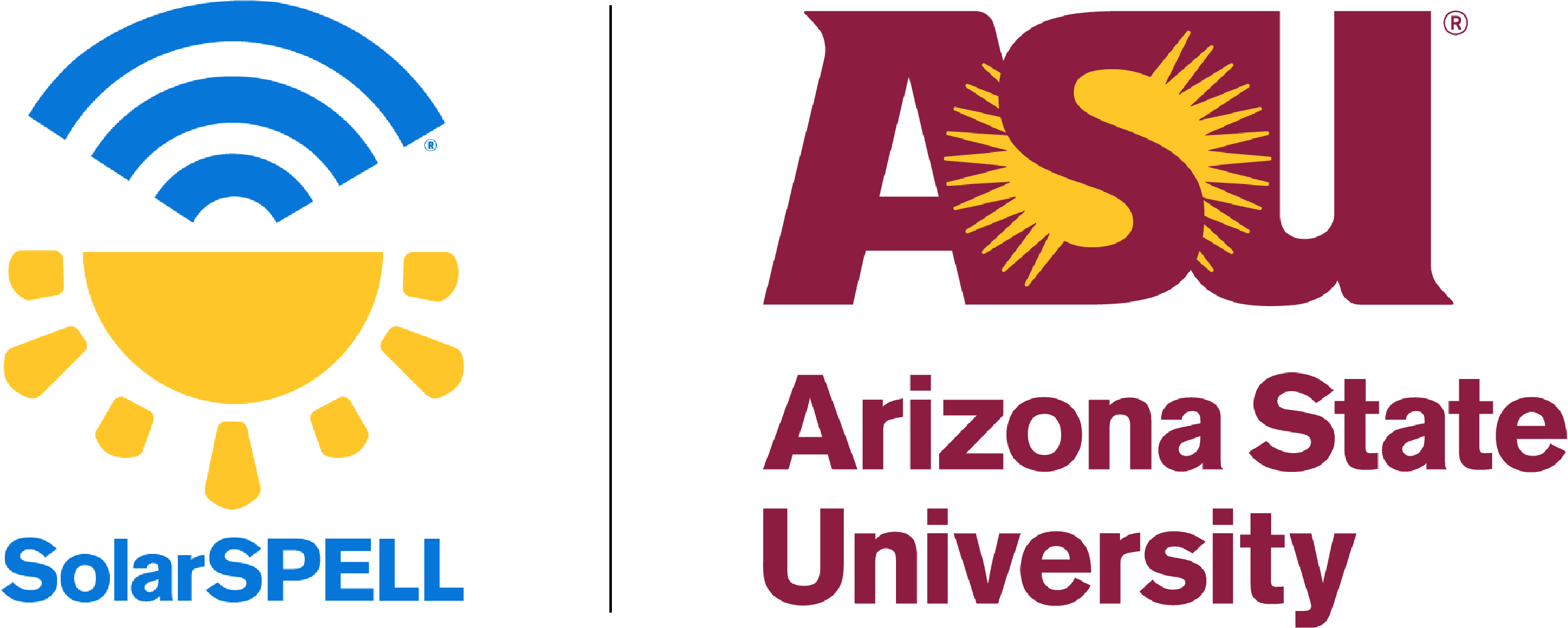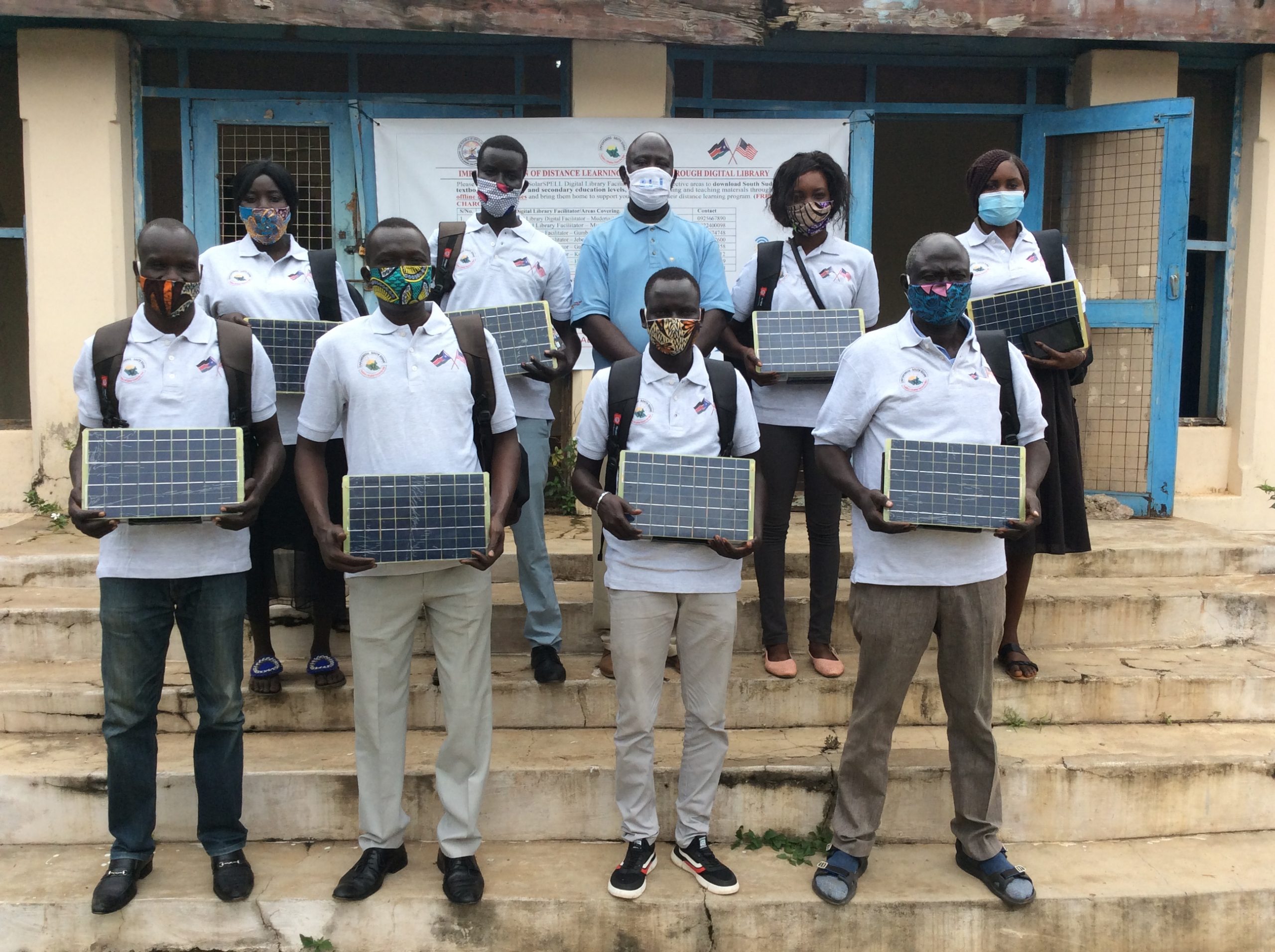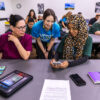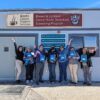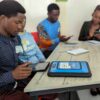Distance learning is a familiar subject in the midst of COVID-19. We’ve also seen how important the internet is for that endeavor in the context of learning in the United States. With over half of the world not having access to affordable or reliable internet, the SolarSPELL digital libraries can address this barrier to learning by providing educational information over an offline WiFi hotspot. Even in the time of COVID-19, when schools are not in session due to health concerns, SolarSPELL can provide the opportunity for learning to continue, as parents and teachers can download textbooks and other educational information onto smart devices to continue the learning process at home.
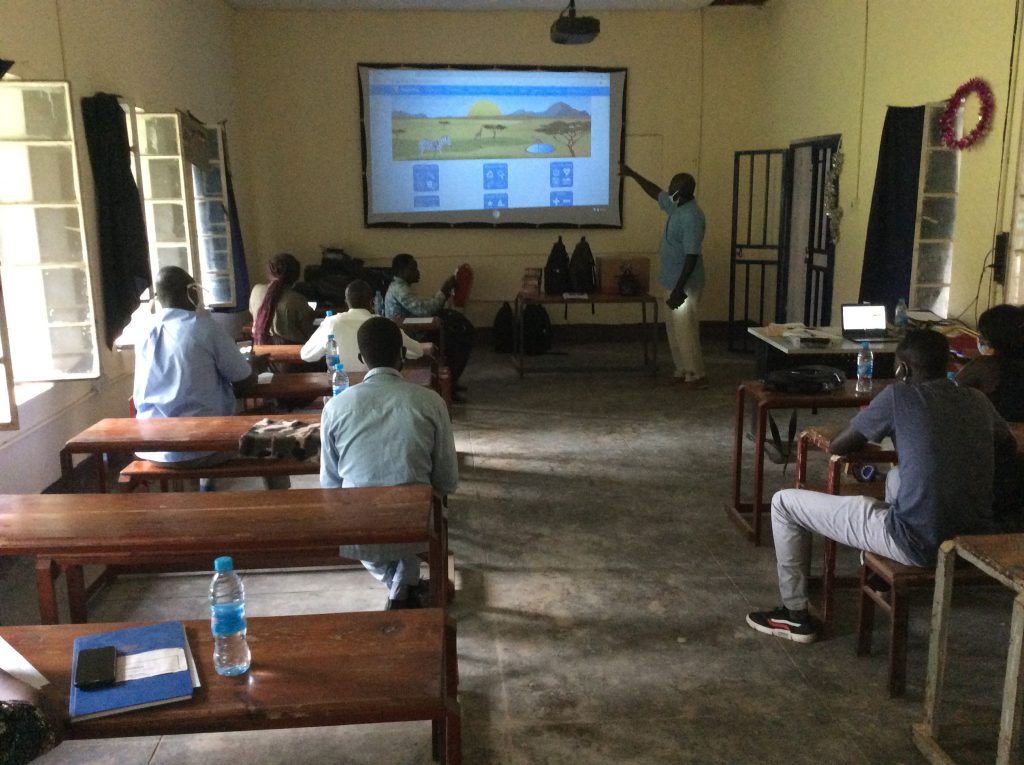 Back in 2019, SolarSPELL launched a Teacher Training Center at the Juba Girls School in South Sudan, establishing a regional hub for Juba-area teachers to receive training on the SolarSPELL digital libraries as these libraries expanded to schools in the capital city. When COVID-19 hit in the Spring, South Sudan discontinued holding in-person classes across the country, as did the majority of countries around the world. The South Sudanese Ministry of Education spearheaded taking the learning to the airwaves, and began broadcasting all levels of instruction over the radio. This was an innovative way to keep the educational momentum going. Yet, a significant challenge remained, since textbooks are in short supply across South Sudan, and it can be difficult to follow along with a teachers’ audio instruction, without a textbook.
Back in 2019, SolarSPELL launched a Teacher Training Center at the Juba Girls School in South Sudan, establishing a regional hub for Juba-area teachers to receive training on the SolarSPELL digital libraries as these libraries expanded to schools in the capital city. When COVID-19 hit in the Spring, South Sudan discontinued holding in-person classes across the country, as did the majority of countries around the world. The South Sudanese Ministry of Education spearheaded taking the learning to the airwaves, and began broadcasting all levels of instruction over the radio. This was an innovative way to keep the educational momentum going. Yet, a significant challenge remained, since textbooks are in short supply across South Sudan, and it can be difficult to follow along with a teachers’ audio instruction, without a textbook. That’s when SolarSPELL’s in-country partner, EmpowerKids South Sudan, had a creative idea to harness the features of the SolarSPELL library, taking advantage of its portability, solar power, localized content, and offline nature. The SolarSPELL units would be taken to specific schools at coordinated times (announced over the radio), so that parents could come to the school to download textbooks and other supplementary educational materials onto their smartphones or devices. That way, their children could continue their schooling from home by both listening to a teacher via a radio broadcast, and following along using a digital textbook.
EmpowerKids-South Sudan’s Director Hakim Monykeur presented this idea to both the Ministry of Education (which approved) and the US Embassy in Juba (which provided financial support).
Training for the facilitators took place at Juba Girls’ School, as the trainees learned not only how to best instruct the parents how to connect to the SolarSPELL library, find and download the textbooks, but also to help them locate supplemental educational materials–all while wearing a mask and keeping safely distanced from one another. The facilitators, equipped with SolarSPELL libraries, would subsequently travel by motorcycle or taxi to the schools, where they would assist the parents in connecting and downloading the materials.
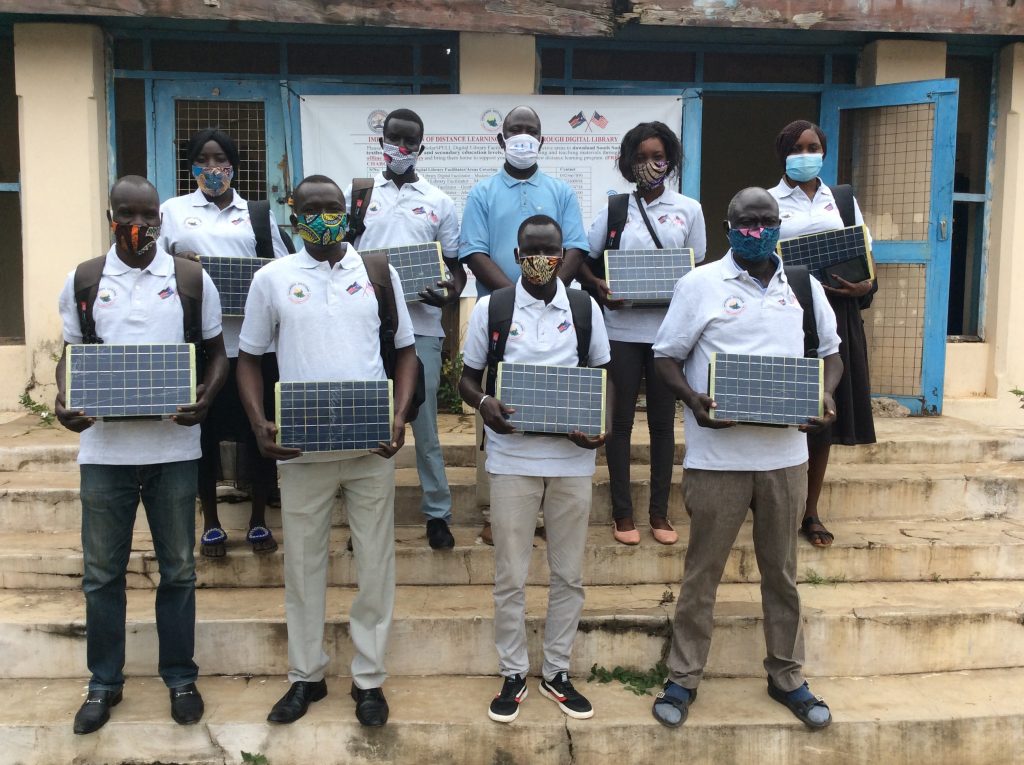
The project is expected to continue, but its first month was a success. Eight facilitators (pictured above) were trained on the SolarSPELL library, equipped with COVID-19 protective materials, and traveled to multiple schools within the Juba area. Teachers, parents, and students from across Juba have been able to download digital textbooks and other learning materials from the SolarSPELL, to access from their devices at home. EmpowerKids-South Sudan is using media platforms to create awareness to encourage more families to participate, and we are incredibly thankful that we could continue to help empower learners remotely, from half a world away.
